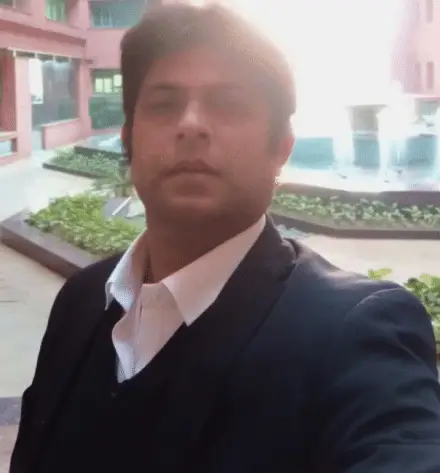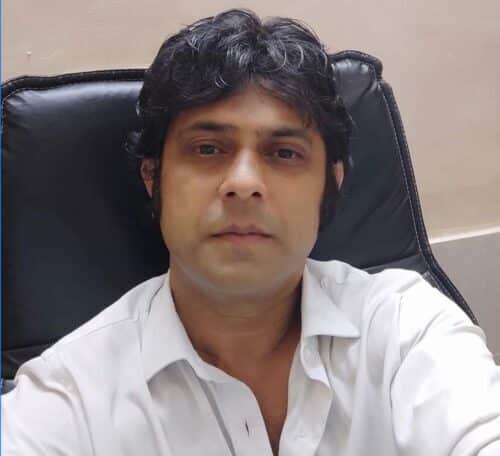When is probate required is a very common question that arises in the minds of legal heirs who are unaware of its importance. Although registration of will not mandatory however it is advisable to do so and although both unregistered and registered wills can be challeged in the court of law . Applying for probate though is not necessary always in some states , but it is in many ways essential to apply for grant of probate.
In Rabindra Nath Mukherjee and Another v. Panchanan Banerjee (Dead) by LRs. and Others5 , the Hon’ble Supreme Court had observed importance of Will when registered and the Sub-Registrar certifies that the same was read over to the executor who, on doing so, had admitted the contents. Therefore in each case, the court must be satisfied as to the mandate and requirements of clause (c) to Section 63 of the Indian Succession Act.
In Jagdish Chand Sharma v. Narain Singh Saini (Dead) Through LRs. and Others6 , the Hon’ble Supreme court referring to Section 63 of the Indian Succession Act had illustrated that the provisions contemplate that in order to validly execute the Will, the testator would have to sign or affix his mark to it or the same has to be signed by some other person in his presence and on his direction. Further, the signature or mark of the testator or signature of the person signing for him has to be so placed that it was intended to give effect to the writing as a Will. Section 63 mandates that the Will should be attested by two or more witnesses each of whom has seen the testator sign or affix his mark to it or has seen some other person sign it in the presence and on the direction of the testator, or has received from the testator a personal acknowledgement of his signature or mark, or the signature of such other person and each of the witnesses has signed the Will in the presence of the testator, though it is not necessary that more than one witness be present at the same time and that no particular form of attestation is necessary. The execution and attestation of the Will are mandatory in nature and any failure and deficiency in adhering to the essential requirements would result in invalidation of the instrument of disposition of the property.
Sections 68 and 71 of the Evidence Act, which relate to proof of documents required by law to be attested, read as under:
“68. Proof of execution of document required by law to be attested.—If a document is required by law to be attested, it shall not be used as evidence until one attesting witness at least has been called for the purpose of proving its execution, if there be an attesting witness alive, and subject to the process of the Court and capable of giving evidence: Provided that it shall not be necessary to call an attesting witness in proof of the execution of any document, not being a will, which has been registered in accordance with the provisions of the Indian Registration Act, 1908 (16 of 1908), unless its execution by the person by whom it purports to have been executed is specifically denied.
- Proof when attesting witness denies the execution.—If the attesting witness denies or does not recollect the execution of the document, its execution may be proved by other evidence.”
In Jagdish Chand Sharma (supra) referring to Sections 68 and 71 of the Evidence Act, it was observed:
“22.2. These statutory provisions, thus, make it incumbent for a document required by law to be attested to have its execution proved by at least one of the attesting witnesses, if alive, and is subject to the process of the court conducting the proceedings involved and is capable of giving evidence. This rigour is, however, eased in case of a document also required to be attested but not a will, if the same has been registered in accordance with the provisions of the Registration Act, 1908 unless the execution of this document by the person said to have executed it denies the same. In any view of the matter, however, the relaxation extended by the proviso is of no avail qua a will. The proof of a will to be admissible in evidence with probative potential, being a document required by law to be attested by two witnesses, would necessarily need proof of its execution through at least one of the attesting witnesses, if alive, and subject to the process of the court concerned and is capable of giving evidence.
22.3. Section 71 provides, however, that if the attesting witness denies or does not recollect the execution of the document, its execution may be proved by the other evidence. The interplay of the above statutory provisions and the underlying legislative objective would be of formidable relevance in evaluating the materials on record and recording the penultimate conclusions. With this backdrop, expedient it would be, to scrutinise the evidence adduced by the parties.
The judgment in M.B. Ramesh (supra) also refers to Janki Narayan Bhoir v. Narayan Namdeo Kadam8 in which with reference to Sections 68 and 71 of the Evidence Act, it was observed:
“22. […] 6. … It is true that although a will is required to be attested by two witnesses it could be proved by examining one of the attesting witnesses as per Section 68 of the Evidence Act.
Highlighting the aforesaid aspects in M.B. Ramesh (supra), it was held that:
“28. As stated by this Court also in H. Venkatachala Iyengar and Jaswant Kaur, while arriving at the finding as to whether the will was duly executed, the Court must satisfy its conscience having regard to the totality of circumstances. The Court’s role in matters concerning wills is limited to examining whether the instrument propounded as the last will of the deceased is or is not that by the testator, and whether it is the product of the free and sound disposing mind [as observed by this Court in para 77 of Gurdev Kaur v. Kaki]. In the present matter, there is no dispute about these factors.”
In Jagdish Chand Sharma (supra) reference was made to the facts of the case in M.B. Ramesh (supra) to observe that on consideration of the totality of circumstances emerging from the narration given by the attesting witness, the omission on the part of this witness to specifically state about the signature by the other attesting witness on the Will in the presence of the testatrix would amount to failure to recollect the fact which deficiency could be replenished with the aid of Section 71 of the Evidence Act. It was observed that the validity of the Will in M.B. Ramesh (supra) was upheld in the context of the attendant singular facts.
The Hon’ble Supreme Court in RAJ KUMARI AND OTHERS VERSUS SURINDER PAL SHARMA , CIVIL APPEAL NO.9683 OF 2019,ARISING OUT OF SPECIAL LEAVE PETITION (CIVIL) NO. 26957 OF 2018) granted leave while stating in para 28 of its order
“The Will which purportedly makes the bequest, is oddly described as a Will Deed. This possibly explains why Surinder Pal Sharma had claimed in his reply, that he was the owner of the tenement even during the lifetime of the mother Suhagwanti. It is in this context that we have read the different portions of the testimony of Raj Kumari and Surinder Pal Sharma; the notice and the reply to hold that there exists grave doubt whether the “Will Deed” was executed and is a “Will” as it purports to be. The marriage of Veena Malhotra as per her wish is not challenged. The testator was an illiterate lady. Even if we are to accept signatures of the testator and the witnesses, we cannot ignore “other evidence” that Suhagwanti and her family members did not understand the true nature of the document executed. There are substantial and good reasons to legitimately suspect and question execution of the Will, which Surinder Pal Sharma, as the propounder of the Will, has not been able to repel and remove so as to satisfy this Court that the Will was validly executed. For these reasons, we would hold that execution of the Will has not been proved by “other evidence” in terms of Section 71 of the Evidence Act”
- Looked and examined from all angles, we are satisfied that the present appeal should be allowed and the judgment of the High Court should be set aside. Accordingly, we restore the judgment and decree dated 17.01.2018 passed by the court of Additional District Judge-03, North District, Rohini District Courts, New Delhi. There would no order as to costs.
CONCLUSION:
It is therefore essential that the intention of the testator must be established under circumstances and merely a signed will is not sufficient unless it be proved that the testator knew on what he or she was signing. For more information kindly click here
For more information you may log in to Supreme Court of India

